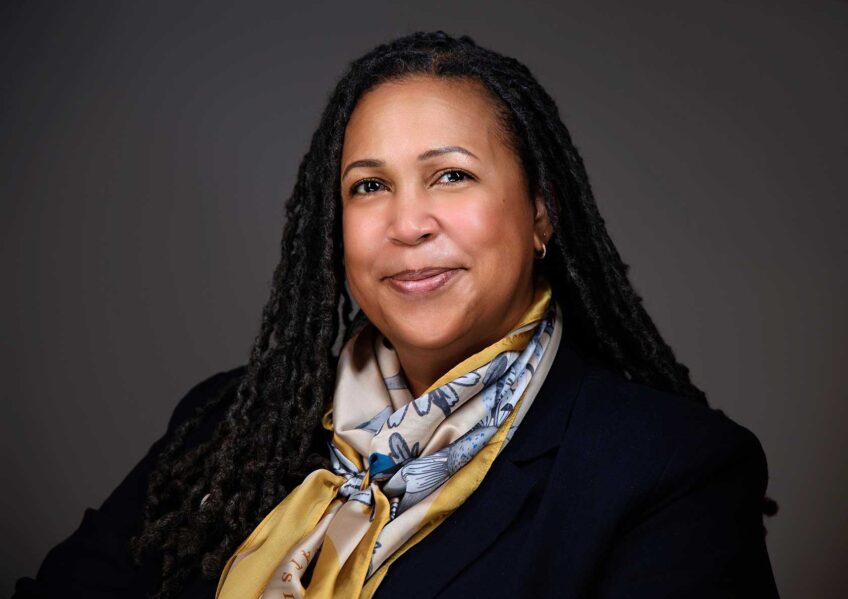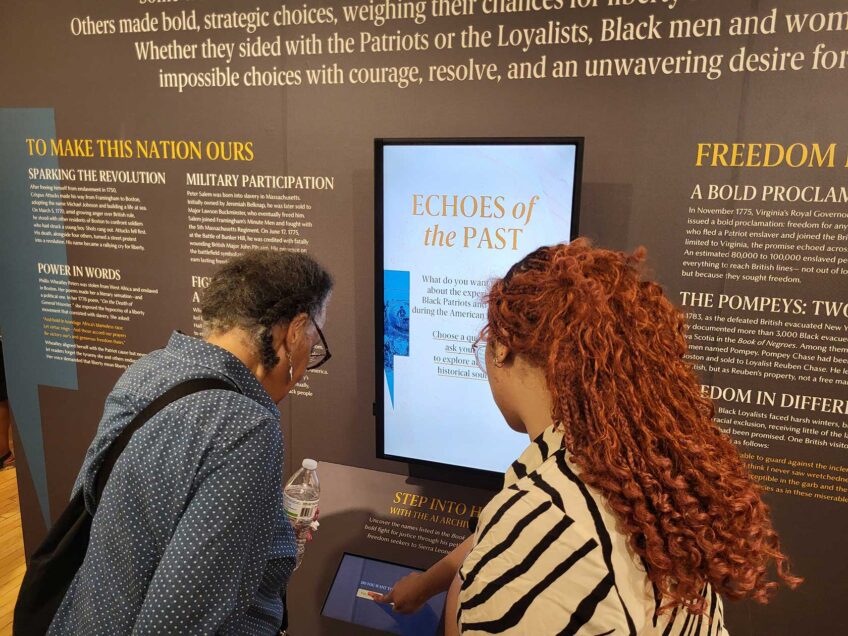Community Voices: Redistricting should protect minority voting rights
The redistricting process now underway in our state presents great opportunities to correct forms of electoral injustice that ostensibly function as civic barriers for millions of minorities. These barriers persist as roadblocks that impede full political participation for blacks, Latinos and Asians in mainstream civil society. They serve as stumbling blocks and impediments that stunt the efforts of public engagement among the poor and foster social alienation, distrust and cynicism toward government.
Consider this inconvenient truth: Minorities in this state now make up 20 percent of its diversity, but are only 5 percent of the elected officials in the Statehouse. Add to this an unfortunate legacy of contentious litigation forced by minority citizens about voting rights over the last four decades.
The Black Political Task Force was compelled to sue the Secretary of the Commonwealth in 1988 over redistricting infractions that clearly violated voting rights. In 1993, The Black Political Task Force filed suit again on matters of voter disenfranchisement. A Latino voting rights group filed claims in federal court against the City of Lawrence in 2002 regarding language ballot access improprieties.
In 2003, The Black Political Task Force sued Secretary of State William Galvin on unfairly drawn state representative districts. And in 2005 the Chinese Progressive Association bought claims to federal judges that the City of Boston had violated the rights of Asian voters. Sadly, in each of these cases, minority claims were confirmed by the federal courts.
In 2011, the stakes are high for communities of color during the redistricting process. This is because in the past, the state redistricting committees have wittingly or unwittingly “cracked” and “packed” communities of color in such ways that minorities were denied the opportunity to elect representation in proportion to their real and aggregate numbers.
Put simply, the natural political influence and voting strength of minorities have been diluted decade after decade in the Commonwealth, even as the minority presence has increased significantly. According to the 1965 Voting Rights Act, this practice of “packing” and “cracking” for the purposes of preserving political incumbency and racial advantage is wrong because it unfairly suppresses the political expression of racial minorities, subjugating them to the will and whim of historically privileged and powerful white majorities.
Over the years, minority voters have systematically been assigned into districts where their vote has diminished power. The effects of this unfortunate practice among minorities have led to political indifference, low voter participation rates and cynicism toward government. To be sure, racial gerrymandering in Massachusetts is a ritual profoundly practiced. For the sake of all citizens it should cease; and these facts should compel us to act.
The growth of the minority community in the Commonwealth over the last decade has been substantial. The Latino and Asian communities grew by 46 percent respectively. And the African American community increased statewide by 26 percent. Cape Verdeans, Haitians, Africans, Chinese and Vietnamese now comprise a vibrant mix of immigrants throughout the state.
Such cities as Springfield, Brockton, Randolph and Chelsea are now populated by majority-minority residents. Cities such as Worcester and Lynn are now significantly influenced by growing minority sub-populations. In light of such growth, redistricting justice on behalf of minorities is not only fair, it’s necessary. It is not only a practical thing to do, its the right thing to do.
Wholly aware of the enormous implications of the redistricting process, a coalition of organizations and advocates have been working assiduously over that last year for redistricting justice. Members of the coalition have attended each of the Legislature’s statewide redistricting hearings. Redistricting advocate organizations have held more than three dozen community and strategy meetings in Boston and across the state.
The work of the coalitions and advocates have generated practical redistricting solutions, in terms of proffering new statewide and congressional maps. In July, the New Democracy Coalition and the Mass Black Empowerment Coalition presented a newly revamped statewide map to the Joint Committee for Redistricting that would effectively bring an end to race-based gerrymandering in the state.
If the Joint Committee on Redistricting simply implemented these maps, the number of black and Latino representatives would increase by 100 percent from 10 to 20 members by calling for the creation of new state representative seats in Springfield, Chelsea, Brockton and Randolph and new state Senate seats in Boston, Lawrence and Springfield.
Most importantly, it is now possible to create a new majority-minority, incumbent-free congressional district that will allow for the likelihood of electing the first person of color to the U.S. House of Representatives; put an end to a particularly pernicious form of “cracking” in Boston’s black community and unify a critical “community of interest” which now has its political influence diluted between two Congressional districts.
Moreover, creating a new congressional district that extends south of Boston to Brockton will unite in a common district the influence of hundreds of thousands of protected class minorities.
In order to expand the democratic foundations of the Commonwealth, districts must now be drawn in a clear, transparent fashion. And careful attention must be given to minority voters to reverse historic discrimination, and provide electoral representation that has too long been denied. This can only be achieved by ensuring uncontested opportunities for political expression among historically disenfranchised groups such as blacks, Latinos and Asians.
Put differently, the Commonwealth must employ a moral logic of redistricting that seeks to achieve the broadest range of civic opportunities in the state; it must commit to an effort of civic realignment that takes seriously the goal of individual freedom and equality, especially for groups that have been the most adversely impacted during past redistricting cycles.
Toward this end we respectfully ask Gov. Patrick to veto any redistricting legislation that does not reflect political equity for minority groups in the Commonwealth; employ the capacity of your legal team to articulate to the state Legislature all the reasons and facts that compel the Commonwealth to follow federal law and judicial admonishment as it pertains to the protected voting classes in Massachusetts; and publicly convey how meaningful it is to finally bring an end to race-based gerrymandering and the deleterious effects such practices has had on historically disenfranchised groups.
There is a federal case to be made in support of fair redistricting for minorities in Massachusetts. In a 2004 ruling on the matter of The Black Political Task Force v. Commonwealth, the federal courts agreed that the full expression of the political influence of black voters were curtailed in the redistricting process in several of Boston’s black communities.
In the U.S. Supreme Court case Lulac v. Perry, minority plaintiffs were supported in their claim that Latino citizens were violated in their attempt to create a majority-minority U.S. House of Representative seat based upon their population in the state.
In Johnson v. Degrandy, the rights of minority voters to maximize their their political influence, when feasible and when possible, were duly affirmed. In Miller v. Johnson, the Supreme Court articulated the extraordinary value of the Voting Rights Act.
In its decision the court acknowledges the Voting Rights Act in “its grant of authority to the federal courts to uncover official efforts to abridge minorities’ right to vote, [and that it] has been of vital importance in eradicating invidious discrimination from the electoral process and enhancing the legitimacy of our political institutions…
“Only if our political system and our society cleanse themselves of that discrimination will all members of the polity share an equal opportunity to gain public office regardless of race.”
The outcomes of the redistricting process now underway will certainly dictate the degree to which our state will either thrive as a comity dedicated to unfettered democratic commitments or be reduced to a mere collective of citizens largely unconcerned about the civil rights and protections of minorities.
Kevin C. Peterson is the founder and director of The New Democracy Coalition and co-chair of The Massachusetts Black Empowerment Coalition. This is an excerpt from Peterson’s open letter to Gov. Deval Patrick.






